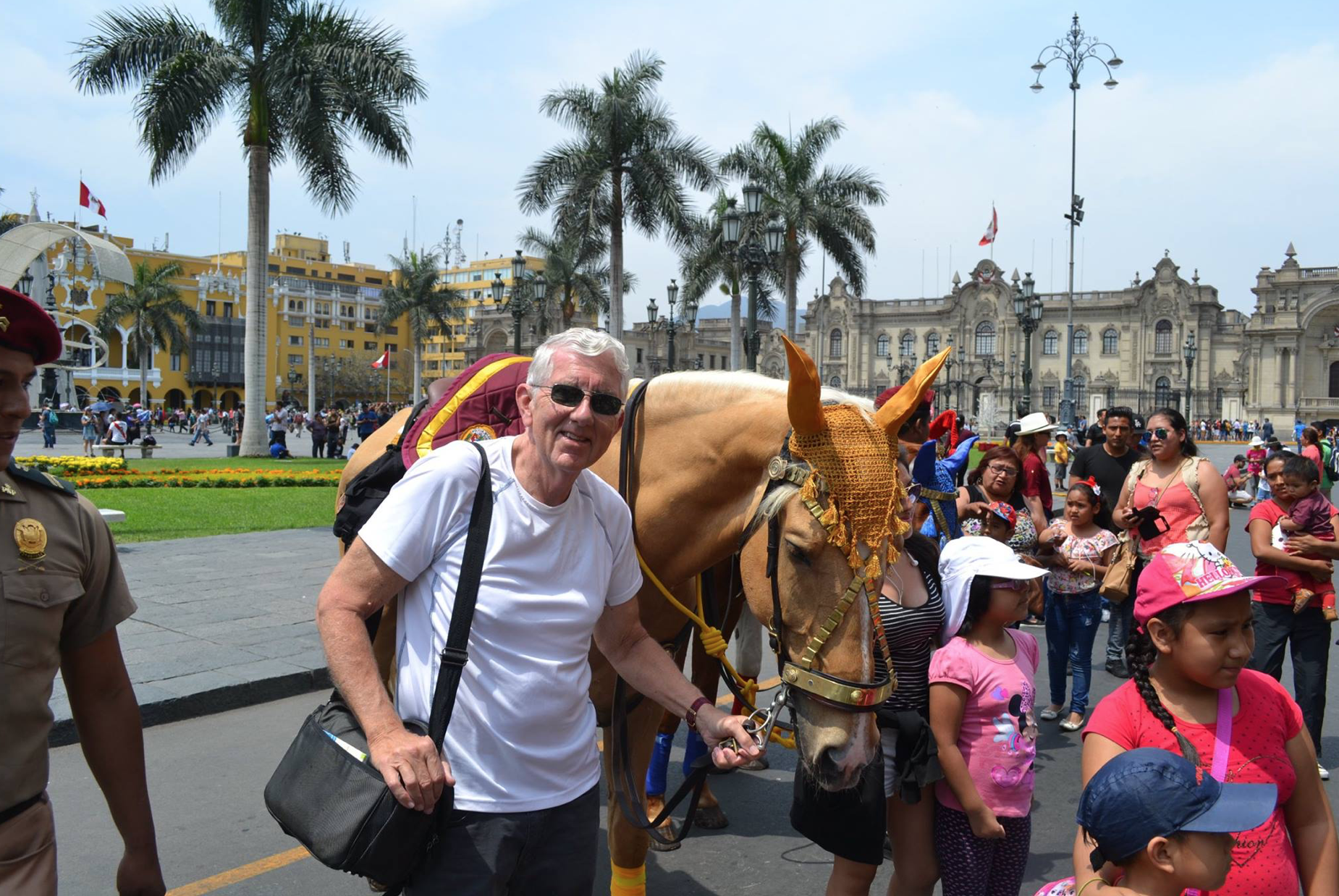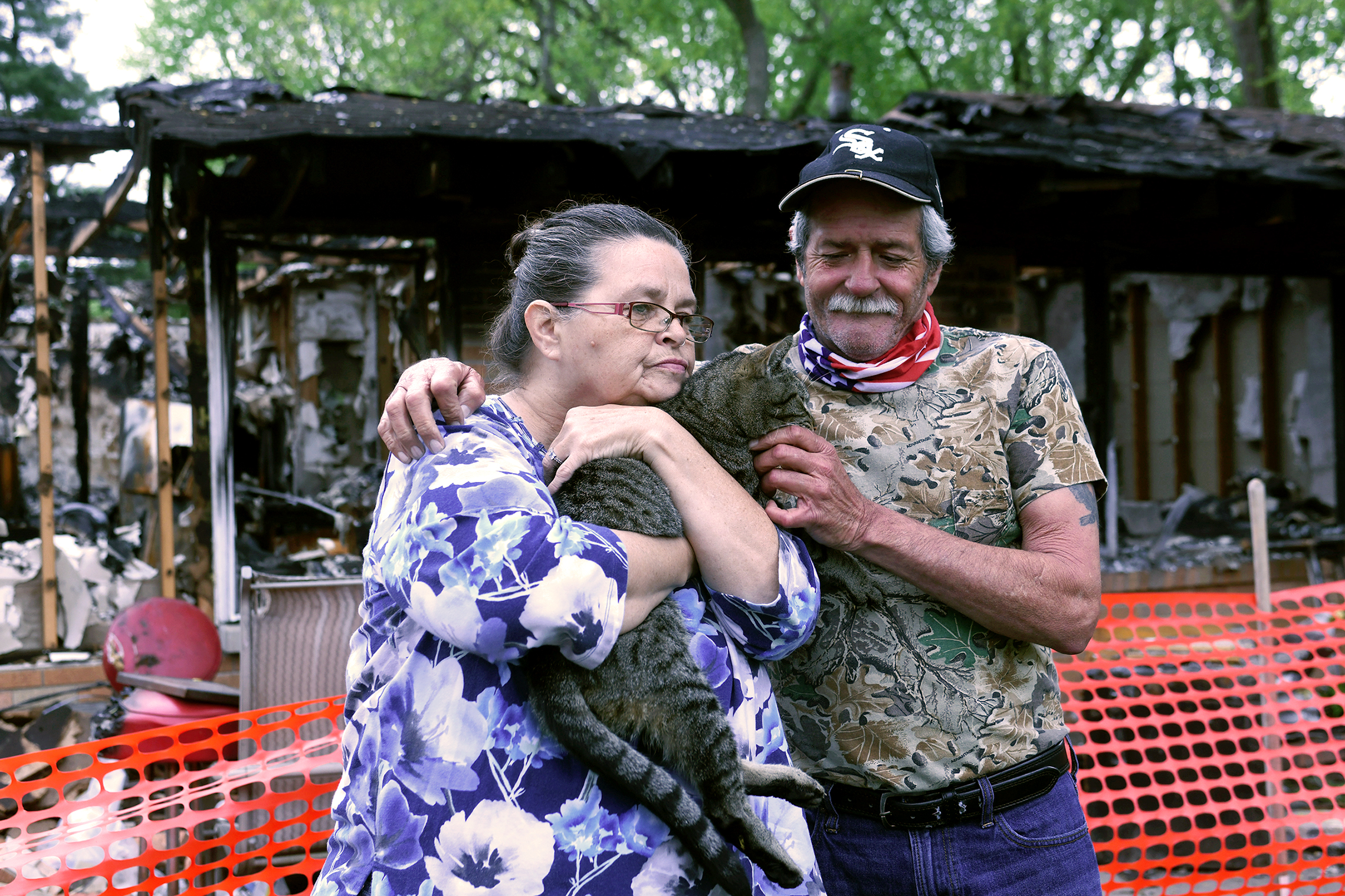Remembering William ‘Reck’ Recktenwald
Remembering a great journalist, investigator, teacher, mentor and friend
When I woke up the day after William A. Recktenwald died this week, the first thing I heard in my head was his gravelly voice asking, “How are you doing my friend?” It was a greeting I had heard from “Reck” dozens of times over the past 15 years at the SIUC School of Journalism where we were colleagues.
I don’t think I know of anyone who stayed in touch with a wider network of friends, colleagues and former students than Reck. Almost every vacation he flew to visit them in far-flung places around the globe. On one of those visits he survived the deadly Sri Lanka tsunami.
If this were August, 2020 rather than August, 2021, I know where Reck would have spent this past week. He would have been at the SIU dorms helping students and their parents move in. He never missed a move-in week – including last year’s as he headed toward retirement – and he had the muscles to get the job done because worked out at the SIU gym late into his 70s.
There are half a dozen categories of greatness that apply to Reck. Great journalist, great investigator, great mentor, great teacher, loyal friend. But despite all that greatness, it was never beneath him to grab suitcases and boxes and tell the students and parents that SIU was a terrific school and they were wanted here.

I knew Reck by reputation before I knew him as a friend. Reck, Phil Greer and I were three journalists whom Mike Lawrence had recruited for the SIU School of Journalism. Mike, himself a journalist and former press spokesperson for Gov. Jim Edgar, was at the Paul Simon Public Policy Institute, which he went on to head.
When I came to SIU, I knew about Reck’s role in the fabled Mirage tavern sting, which revealed many of Chicago’s inspectors were crooks. And I knew he was a storied investigative reporter for the Chicago Tribune, who was a finalist for a Pulitzer prize multiple times and worked on two teams that won Pulitzers.
What I didn’t realize was that Reck would be my savvy, hard-working, collaborator on some of our biggest projects in the School.
One of the worst days of our lives was April 29, 2008 when Ryan Rendleman, a talented young photojournalist on the Daily Egyptian, was killed when a truck totaled his car as he drove along Highway 127 to an assignment. On the day of his death, Rendleman had been offered a hand-out photo of a child afflicted by a disease for which there was a scheduled fundraiser near Carbondale. He could have just stuck the hand-out in the paper with a short story. But Rendleman thought he would bring the story to life by taking photos of the child and was on the way to the photoshoot when the truck struck him.
We were devastated. Reck, Greer and I had been particularly close to him along with the students and the faculty managing editor at the DE, Eric Fidler. We started a scholarship in Ryan’s name and planted a redbud tree outside the School of Journalism. Reck worked hard on both projects, tending to the health of the tree as years passed. And he took it a step farther by getting Ryan recognized at the Newseum in Washington D.C. as one of the journalists who had died in the line of duty. He remained close to Ryan’s family.
The day the Leap Day Tornado hit Harrisburg in 2012, Reck made sure that DE reporters and photographers got to the scene immediately and then called friends at the Tribune to tell them about the disaster. DE photos were on the front of the Trib the next day thanks to Reck’s intercession.
But it was what Reck did next that was special. He headed up a project to publish a book on the Leap Day Tornado to help raise funds for those hurt by the storm. Not only did Reck lead the project, he also lined up the support of the chancellor and himself sold some ads to help fund publication. He presented the book to the community the following August.
Reck also took the lead in our retrospective on the first century of the Daily Egyptian. He spent hours pulling together the names of past editors and making sure their names were all spelled right – not an easy task. He also lined up Geoff Ritter, a former student working at the Carbondale Times, to write the lead piece.
Geoff was one of scores of students with whom Reck stayed in close touch. In the end, Geoff was Reck’s power of attorney and had to deal with difficult decisions over these past five weeks as his health declined rapidly. Ritter’s obit on Reck captures the man beautifully.
As we approached the 100th anniversary edition of the DE, Reck and I talked often about the sad fact that there hadn’t been a Black editor and that Blacks often didn’t feel at home in the newsroom. We were grateful that Tyler Davis broke through that year to become the first Black editor. (And this year, Oreoluwa Ojewuyi became the first Black woman EIC.)
During most of his years in the School of Journalism, Reck was the faculty sponsor of the local National Association of Black Journalists chapter. He often found ways to fund trips for the reporters to national NABJ conferences. Reck also kept in close touch with Ugandan students we had met on trips there. He often updated me on students I had met but that he had really gotten to know.
If memory serves, Reck also once bought a car for a poor Hispanic student to drive to a far-off summer internship. And another time he lined me up to join him interceding with the court to reduce the punishment of a promising DE cartoonist who had broken a window in downtown Carbondale.
Students loved his classes. I’ve heard from many in the past few days. Reck treated them to a wry, understated sense of humor as he imparted the wisdom of half a century. One example was the story he told to stress the importance of ending an interview by asking if the interviewee had anything to add. Reck told of an interview he had with a coroner after a young man had died unexpectedly and his parents suspected foul play. When Reck asked the coroner if there was anything to add, the coroner said there was one last matter – the note found in the man’s stomach. It was a suicide note.
There were many paradoxes in Reck’s life. He was a storied reporter even though he couldn’t write or type well. He didn’t have a close family life but kept up with dozens and dozens of close friends. He didn’t have children but mentored scores of young people who remained his devoted friends. And he didn’t graduate from college, because of his undiagnosed dyslexia, yet rose to be president of the SIU Faculty Senate.
In our journalism faculty meetings he was the most savvy of operators. I was the director but always made sure I was on the same side as Reck – not only because he usually was right but also because he almost always won. His keen reading of the departmental operating papers left those of us with so-called “terminal” degrees in the dust.
Most of my journalistic mentors are dead now. But I sometimes hear them in my head – not their voices but their nuggets of wisdom. For years to come, I think I’ll be hearing Reck and his greeting, “How are you doing my friend?”
William H. Freivogel is a professor and former director of the School of Journalism at SIUC. He is the publisher of Gateway Journalism Review.

